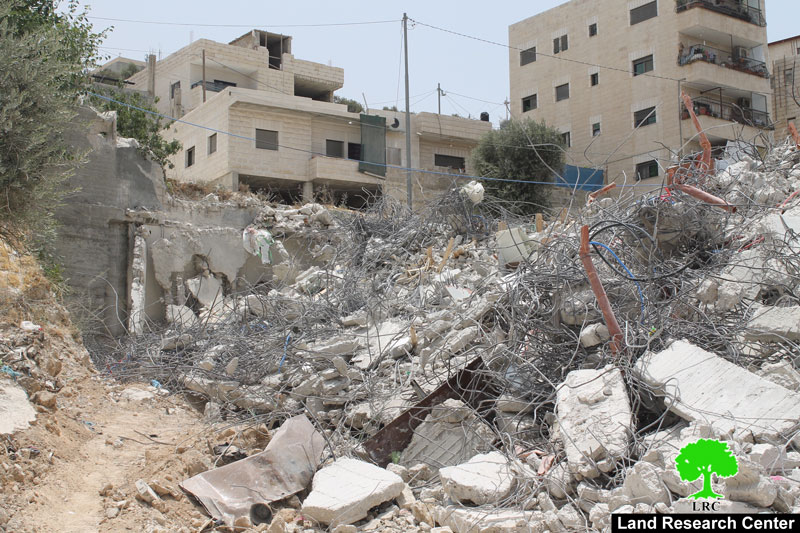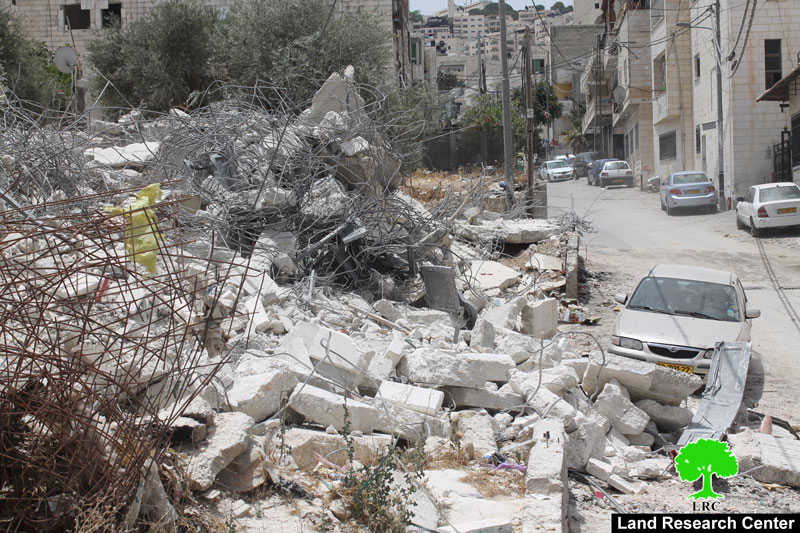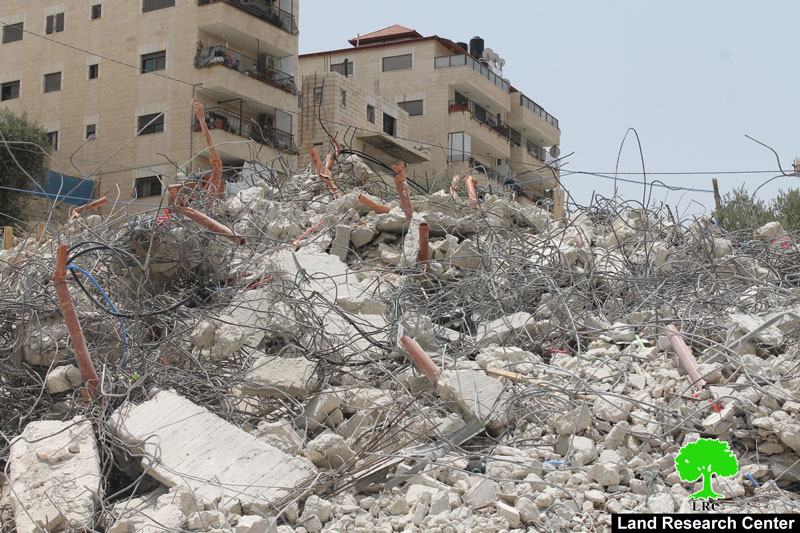2017-07-11
Israel's occupation municipality demolishes a residential building in Jerusalem
The bulldozers of Israel's occupation municipality demolished on July 11, 2017 a residential building( four floors and six apartments) owned by Mahmoud and Obaied families in the village of Isawiya on the claim of "unlicensed construction".
It is reported that the occupation’s bulldozers along with municipality employees and dozens of Special Forces personnel raided the area at dawn, surrounded the targeted building and started demolishing it.
Mahmoud explained that the building was established on a land parcel that is of 1200m2 and that the total area of construction is 980m2. The building consists of 4 floors with 6 apartments and two storage areas; construction was started a year ago.
At time of construction, the municipality visited the construction site, took pictures of the building and issued a demolition order under the pretext of building without a permit. The family appointed a lawyer to follow-up with their case and to postpone the demolition order in an attempt to license the building but to no avail.
Eventually, the building was brought down and citizen Mahmoud confirmed that his losses totaled 1,300,000 NIS.
The area of Al-Isawiya is suffering from Israeli measures and restrictions seen in closures, checkpoints and harassments. Kids, women and elderly suffer from soldiers where dozens of youth get detained on daily basis. Houses and structures get demolished and sabotaged as a result.



Land Research Center LRC sees that demolitions contradict with all the International conventions and Humanitarian laws including:
Article 17 of the (1948) Universal Declaration of Human Rights stating: “Everyone has the right to own property alone as well as in association with others. No one shall be arbitrarily deprived of his property.”
Section ‹G› of article 23 of the (1907) The Hague Conventions asserting: “In addition to the prohibitions provided by special Conventions, it is especially forbidden to destroy or seize the enemy's property, unless such destruction or seizure be imperatively demanded by the necessities of war.”
Article 53 of the Geneva Fourth Convention (1948) declaring: “Any destruction by the Occupying Power of real or personal property belonging individually or collectively to private persons, or to the State, or to other public authorities, or to social or cooperative organizations, is prohibited, except where such destruction is rendered absolutely necessary by military operations.”
Section 1, Article 11 of the International Covenant on Economic, Social and Cultural Rights (1966): “The States Parties to the present Covenant recognize the right of everyone to an adequate standard of living for himself and his family, including adequate food, clothing and housing, and to the continuous improvement of living conditions.
This case study is part of Kan'aan Project

